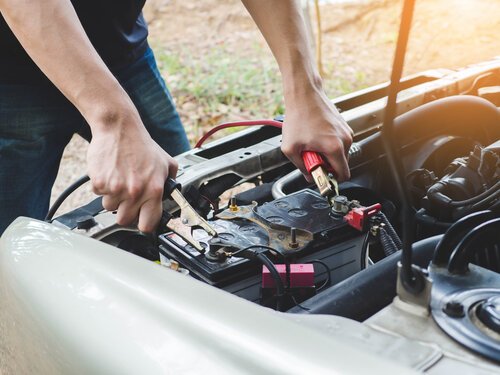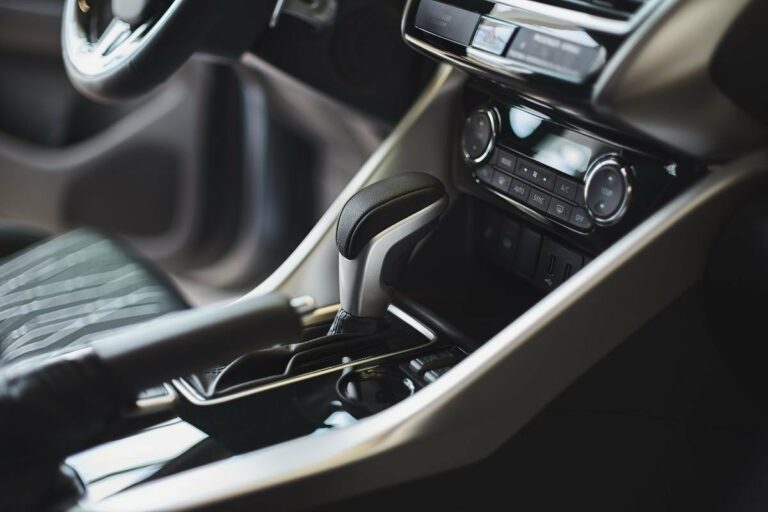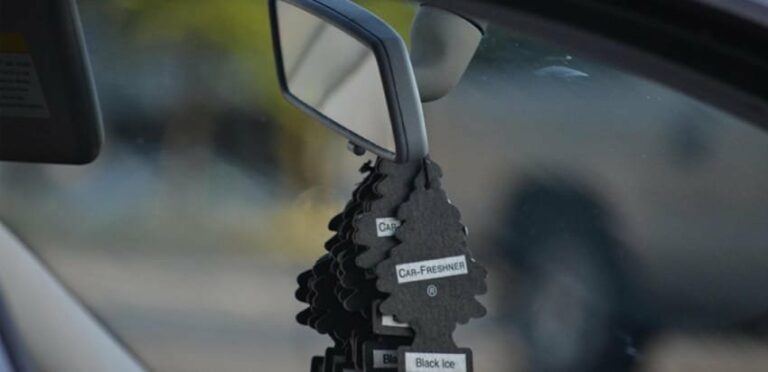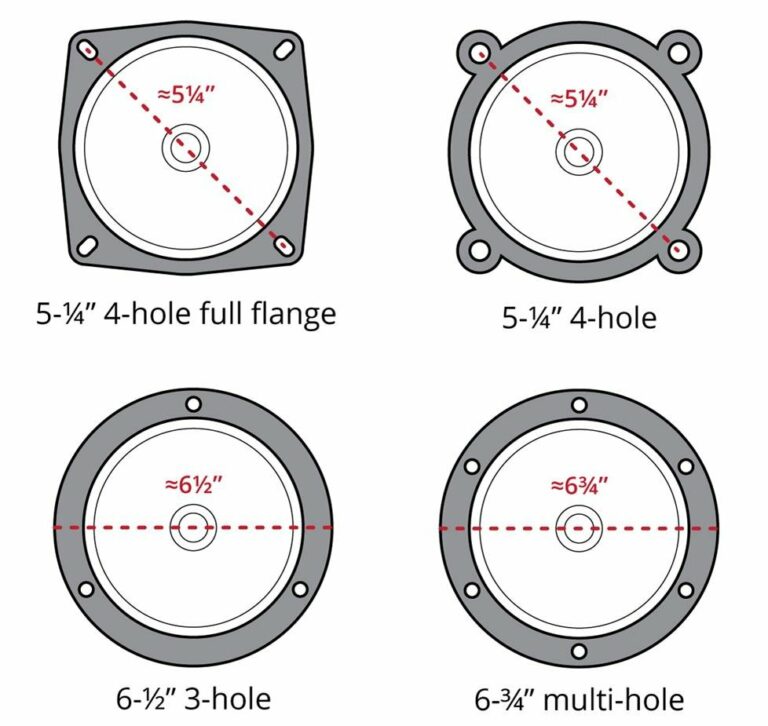Can A Marine Battery Power Your Car?
Wondering if a marine battery can work in your car? The short answer is yes, it can. If you find yourself in a situation where your car battery has given up on you, and all you have is a marine battery at hand, don’t worry. While marine batteries are primarily designed for use in boats and other marine vehicles, they can also be used in cars as a temporary solution. In this blog article, we will delve deeper into the topic of using a marine battery in a car, exploring its compatibility, pros, and cons. So, let’s get started!
Will a Marine Battery Work in a Car?
If you’ve ever found yourself in need of replacing your car battery, you may have wondered if a marine battery could be a suitable alternative. After all, they both serve the purpose of providing electrical power to a vehicle. While it might seem like a marine battery could work in a car, there are several important factors to consider before making such a decision. In this article, we will dive deep into this topic to help you understand whether a marine battery is a viable option for your car.
Differences Between Marine Batteries and Car Batteries
To determine whether a marine battery will work in a car, it’s crucial to first understand the fundamental differences between these two types of batteries. While they may appear similar on the surface, there are certain characteristics that set them apart.
Battery Capacity and Reserve Capacity
One of the key differences between marine batteries and car batteries lies in their capacity and reserve capacity. Car batteries are designed to provide a high current for a short duration to start the engine, whereas marine batteries are built to deliver a steady and sustained power supply over a longer period of time to support various electronics and accessories on boats.
Car batteries typically have a lower capacity and reserve capacity compared to marine batteries. The reserve capacity refers to the number of minutes a battery can deliver a sustained electrical load of 25 amps before falling below the minimum voltage required. Marine batteries often have a higher reserve capacity, which allows them to power additional equipment on boats.
Battery Construction
Another important distinction is the construction of marine batteries versus car batteries. Marine batteries are usually built with thicker and more robust plates to withstand the harsh marine environment, including vibrations and constant motion. On the other hand, car batteries are designed to be lighter and more compact since they don’t usually experience the same level of mechanical stress.
Battery Type
There are various types of batteries available for both marine and car applications. The most common type of battery used in cars is the lead-acid battery, specifically the flooded lead-acid battery. It consists of lead plates submerged in an electrolyte solution.
However, marine batteries encompass a wider range of battery types. Some examples include flooded lead-acid, gel, and absorbed glass mat (AGM) batteries. Each type has its own unique characteristics and performance specifications, which can impact their suitability for use in a car.
Can a Marine Battery be Used in a Car?
While it is technically possible to use a marine battery in a car, there are several factors to consider before doing so. Let’s explore these factors in detail.
Compatibility with Vehicle Electrical System
One of the primary considerations when using a marine battery in a car is whether it is compatible with the vehicle’s electrical system. Marine batteries are typically designed to handle a broader range of electrical loads, including multiple electronics and accessories found on boats. The higher capacity and reserve capacity of marine batteries may not be fully utilized in a car, potentially leading to decreased performance and longevity.
Additionally, the charging system in a car may not be optimized for charging marine batteries. Car alternators are typically designed to charge car batteries, which have different charging requirements. Charging a marine battery with a car alternator may result in overcharging or undercharging, both of which can damage the battery.
Size and Form Factor
Another critical consideration is the size and form factor of the marine battery. Car batteries are specifically designed to fit within the allocated battery compartment of a vehicle. Marine batteries, on the other hand, come in various sizes and shapes, with some being considerably larger than car batteries.
It is essential to ensure that the marine battery fits securely and properly within the car’s battery compartment. A loose or improperly fitting battery can result in vibrations and potential damage to the battery terminals or electrical connections.
Environmental Considerations
One advantage of marine batteries is their ability to withstand harsh marine environments. However, this doesn’t necessarily mean they are suitable for the diverse range of conditions that a car battery may encounter. Car batteries need to withstand extreme temperatures, including both hot and cold weather conditions. Marine batteries may not be designed to handle such temperature extremes, potentially leading to decreased performance and reliability.
Warranty and Liability
Using a marine battery in a car may void any existing warranty on the battery. Manufacturers typically design batteries with specific applications in mind and provide warranties accordingly. By using a marine battery in a car, you may be disregarding the manufacturer’s intended use, making any warranty coverage void.
It is also worth considering the potential liability implications of using a marine battery in a car. In the event of a battery-related incident or accident, insurance companies and legal entities may question the use of an incompatible battery, potentially complicating insurance claims or legal proceedings.
Alternatives to Using a Marine Battery in a Car
If you are considering using a marine battery in your car but have reservations, there are alternatives to explore.
Car-Specific Batteries
Car batteries are designed and optimized for use in automotive applications. They are readily available in various capacities and specifications, ensuring compatibility with your vehicle’s electrical system. Investing in a high-quality car battery that meets your specific requirements is generally the recommended route.
Enhanced Car Batteries
In certain cases, you may require a battery with a higher capacity or longer lifespan to meet specific power demands. In such situations, enhanced car batteries, such as deep cycle batteries or AGM batteries, can be considered as alternatives to marine batteries. These batteries are specifically designed to provide a sustained and steady power supply, making them suitable for applications that require extended power delivery.
While a marine battery might technically work in a car, it is not generally recommended or advisable due to various reasons. The differences in capacity, construction, and compatibility make car batteries the ideal choice for automotive applications. It is always best to choose a battery specifically designed for your vehicle to ensure optimal performance, longevity, and compatibility with the electrical system. By selecting the right battery for your car, you can avoid potential issues and enjoy a reliable and efficient power source.
Marine Battery In a Vehicle. You gotta be kidding me!!!
Frequently Asked Questions
Will a marine battery work in a car?
Yes, a marine battery can work in a car, but there are a few factors to consider. Marine batteries are typically designed to provide continuous power over a longer period, while car batteries are built for starting the engine. Marine batteries usually have deep-cycle capabilities, which means they can be discharged and recharged multiple times. However, car batteries have higher cranking amps to supply a burst of power to start the engine. So, while a marine battery can work in a car, it may not be as efficient for starting the engine compared to a dedicated car battery.
What is the difference between a marine battery and a car battery?
The primary difference between a marine battery and a car battery lies in their design and purpose. Marine batteries are built to withstand harsh marine environments, with added resistance to vibrations and the ability to discharge and recharge multiple times. They are also designed for deep cycling to provide continuous power for extended periods. On the other hand, car batteries are specifically engineered for high cranking power to start vehicles. They are not designed for deep cycling, and prolonged discharge can damage a car battery’s performance.
Can I use a marine deep-cycle battery as a car battery?
While you can use a marine deep-cycle battery as a car battery, it may not be the most efficient option. Marine batteries are designed for continuous power delivery over a longer period, whereas car batteries are optimized for quick bursts of high cranking power to start the engine. Using a marine battery as a car battery can result in reduced starting performance and may not provide the necessary power for efficient engine startup.
What are the advantages of using a marine battery in a car?
Using a marine battery in a car can have some advantages, such as increased capacity for powering additional accessories like car audio systems or off-road lights. Marine batteries often have higher reserve capacity ratings, allowing for longer periods of power supply. Additionally, marine batteries are built to withstand vibrations and harsh environments, which can be beneficial in certain off-road or rugged driving conditions. However, it’s important to note that a marine battery may not provide optimal performance for starting the car engine.
Are there any disadvantages of using a marine battery in a car?
There are a few disadvantages to using a marine battery in a car. First and foremost, marine batteries may not have the same cranking power as dedicated car batteries, which can result in slower or inefficient engine startups. Secondly, marine batteries are generally heavier and bulkier compared to car batteries, which may not fit properly in the car’s battery compartment. Lastly, using a deep-cycle marine battery for starting the engine can lead to reduced battery life and potential damage due to the battery’s design not being optimized for frequent starting and charging cycles.
Final Thoughts
A marine battery may work in a car, but it is not the ideal choice. Marine batteries are designed for different purposes, primarily for starting and powering boat engines. While they can provide the necessary electrical power to start a car, they may not have the same capacity as a car battery to sustain prolonged use. Moreover, marine batteries are usually not equipped with the same safety features as car batteries, such as a flame arrestor or explosion-proof design. Therefore, it is recommended to use a car battery specifically designed for automotive applications for optimal performance and safety.






